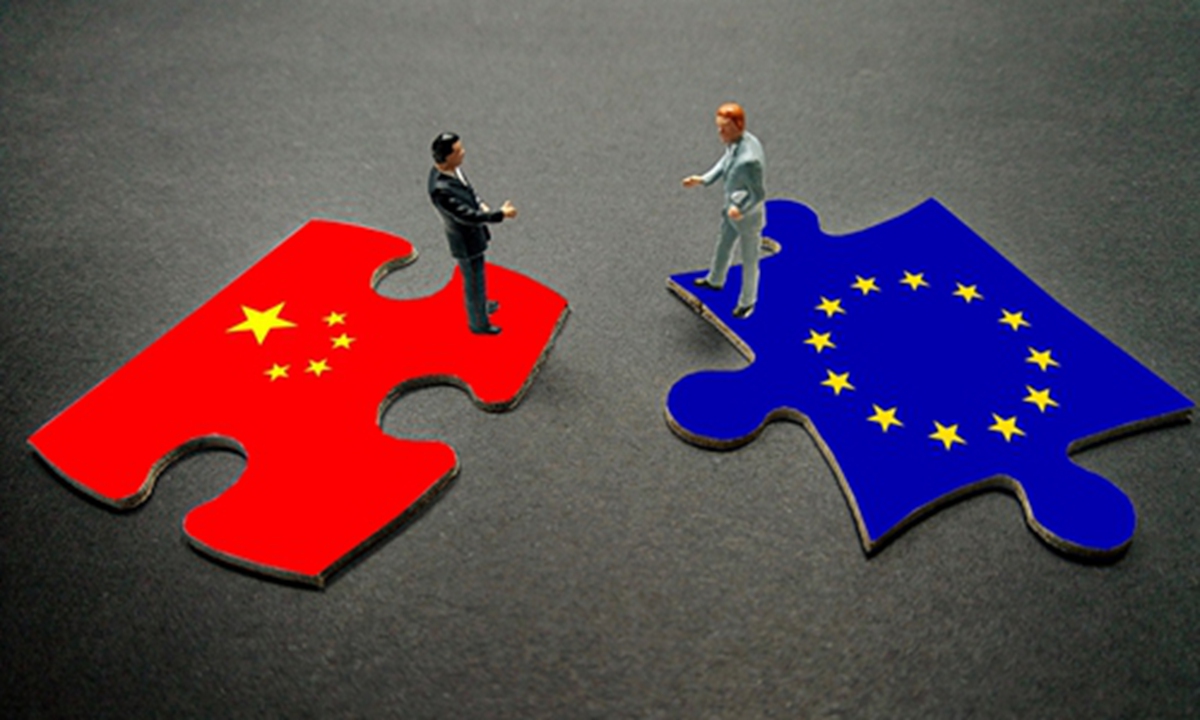
Photo: VCG
Editor's Note:
Rana Mitter (
Mitter), Professor of the History and Politics of Modern China at the Department of Politics and International Relations at Oxford University, recently underscored what the West gets wrong about China. Why is the West indulging in these misperceptions? Will the pandemic change people's perceptions of China and alter the international order? Global Times (
GT) reporter Wang Wenwen talked to Mitter about these issues.
GT: In your recent article "What the West gets wrong about China," you said the West has three misperceptions about China. Why is the West indulging in these misperceptions? How can the West be made to understand the relations between the CPC and China's governance? Will the different performances between China and the West in handling the pandemic break these misperceptions?

Rana Mitter Photo: Sun Wei/GT
Mitter: Think about the vast majority of countries that have become rich and prosperous in the last 70 years since the end of WWII. The G7 summit has just concluded in Britain. What do these countries have in common? Since 1945, those countries have all had relatively quite predictable, quite stable, socioeconomic systems. They've had electoral democracies. They basically existed within a kind of economic and political system created by a whole variety of global initiatives - the Marshall Plan, the European Community (Britain just left the European Community, but it was there for nearly 50 years), NATO and so forth.
If you look at any of the major economies in the world, look at the top 10, maybe top 15, even, China is unusual in that the unpredictability of its recent history, the ups and downs, tend to be very sharp. And that shapes people's short-term and long-term behavior in a way that isn't the same in a country like Britain or Germany, where since 1945, essentially, most of the milestones, the signpost of how the society and the economy and the politics are going to develop, are more predictable. So it's not really an analysis that I'm making that one is good or one is bad. What I'm saying is that, if you don't understand the history, you won't understand how it's different and being different is really one of the key points. And education is the most important way for the West to get to understand more about China.
GT: The pandemic has exposed many shortcomings of the West's democratic governance. Statistics show that the five members of the G7 recorded coronavirus cases which rank among the top 10 across the world. How has the pandemic changed the global attractiveness of democracy?
Mitter: Two things. No.1, the ability to create a vaccine fast came from the ecosystem of a democracy - a combination of private enterprise and state support for the funding of science, backed up by public consensus.
The second point is, there is a new president of the US and the clear statistic is that, the vaccine program is going really well in the US, where over 40 percent of people have been fully vaccinated. The numbers are going out. Does that mean that countries that don't have liberal democratic systems can't succeed? Of course not. Let's use a neutral example because people always bring out the same ones, America, China. Let's talk about Vietnam, which has a top down government also ruled by the Vietnamese Communist Party in that case. But all the reports suggest that actually, in terms of organization, they have done pretty well in terms of suppressing the virus.
I personally would say that if you're doing this as a political scientist, then you will look at democratic countries. You'll look at authoritarian countries. And you'll say, actually, there's no obvious link between which one of them is more successful. It's about organization. It's about consensus and it's also about distribution and being able to get that precious vaccine out into the arms of people who need it. That I think is the real lesson of what's going on.
GT: In the post-pandemic era, what changes do you think might happen to the international order?
Mitter: I would say that it's too early to tell. I think there are some good signs and some bad signs. The bad sign is that for some time to come, it will be harder for us to travel across each other's borders. It's not a political issue. It's a medical issue.
But I also would say something that's really at the heart of how the world is going to change - it starts with something really bad, but actually could become something really good.
Now we know that the big players in the world, the US under Biden, China, the UK and the EU more broadly all have taken a really strong stance that climate change is a transnational problem, which has to be dealt with. We don't have a choice about it. This is not something that we can maybe put off for a few years till we feel better about it. It's there. This is not something that any one country can do, even a country as big as the US but it's great that the US is back in the Paris agreement. Even a country as big as China can't achieve it without tremendous amounts of international cooperation.
So I'm looking to the responsible powers of the world to make good on their words and actually show that the actions that they're putting forward mean that the new international order is one that puts cooperation over climate change at the fore. And we hope, then solves that problem.
GT: China-Europe relations with specific countries are seemingly being hijacked by some minority forces. For instance, the China-Europe investment agreement which took seven years of negotiations was halted by the European parliament. And Lithuania announced that it would withdraw from the 17+1 mechanism and called on other members to quit. It is believed China and Europe are highly complementary in terms of economics. What do you think of the situation of minority factions hijacking the interests of majority?
Mitter: I think that the relationship will always be shaped by three major issues, which are security, economics, and values. I think that it's important that both sides end up discussing them with due respect on both sides of all three of those issues. But at the same time realizing that there are going to be significant disagreements. I think it's unreasonable either for the Europeans or Chinese to think that both sides are going to agree on absolutely everything. But it is important to find common ground where both sides can actually find some areas for interaction. And also acknowledge there are some areas where maybe it won't be possible, because there won't be agreement. That has been true for great powers engaging with each other around the world for centuries. So in that sense, as a historian, I would say there's nothing new about this particular set of disputes.
The EU is its own actor. It exists in a very different sort of structure from the US. And it's not a country. It's a confederation. That's a very different sort of enterprise. But I think it's fair to say at the moment that there are economic, security and values issues which are being debated very strongly within Europe. I think that it would be very interesting to know are how openly and how freely the same questions are being debated in China. Because both sides being able to know more about what the other side is thinking is a really, really important part of both sides coming to a workable agreement. But workable may be good enough in a turbulent world.





